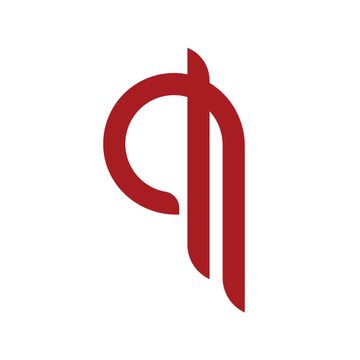Book publishing is a crooked business. Not in the sense that it is full of ‘crooks’, which it may be, (like most other businesses), but in the sense that the risks and rewards of the whole endeavour are crookedly unbalanced.
Who is benefitting, profiting the most from book publishing? Well, it’s not authors — for sure! So, let’s see if we can pinpoint some blame and figure out the flaws in the whole crooked system.
The famous author Umberto Eco wrote brilliantly in his novel Foucault’s Pendulum about the activities of an archetypical ‘vanity’ publisher. So-called ‘vanity’ publishers are the victim and recipient of much hatred and vitriol by authors and the bookish culture gatekeepers. However, they are not the real ‘villains’. They provide a (mostly) legitimate ‘service’ to those writers who can afford it and may be too suckered, or susceptible to promises of ‘fame and fortune’ and the ‘vanity’ of being a published author.
The ‘business’ of book publishing is dominated by a few huge well known multinational corporations and by so-called ‘indies’ (independently owned imprints). In reality, many ‘indies’ are actually small imprints of a large corporation and not ‘indie’ at all. Indies are split between those that carry on offering ‘traditional’ publishing and, in an increasingly dominant trend, those that offer ‘hybrid’ publishing. Hybrid publishers offer paid for services to authors with the end result of publication and distribution. Hybrid publishers are all too often accused of being ‘vanity’ publishers but without the services they offer most books would never reach a reading public even if it may be small.
Indies that offer only ‘traditional’ publishing are, as is the case in Wales, subsidised or supported by charities, endowments or government ‘culture’ grants which cover their costs. They may be independent businesses but are often constrained in what they can publish by the stipulations and conditions of their funding.
We now come to the actual ‘retail’ side of publishing — bookshops and distributors. To illustrate how this works, I will tell the story and route of how a book gets from printer to the bookstore shelf/display. You will be able to infer the numerous ways in which the system is ‘rigged’ and not in the favour of the writer or the publisher.
Step 1. Publication. The book is published by whatever method trad/hybrid/vanity/corporate. Risk/reward ratio 50/50
Step2. Printing. There may (or usually not) be a ‘print run. These days 99% of titles are POD (print on demand) even from big corporates and their ‘indie’ dependents. Risk/ reward ratio 20/80
Step 3 Marketing. Social media influencers, book reviewers bungs. Risk/reward ratio 80/20
Step 4 Retail. Bookstore and distribution bungs. Risk/reward ratio 0/100
Why have I allocated a zero risk to bookshops? The reason is simple. Sale or return and a 55% margin. Bookstores whether they are chains or independent take no risk at all in this business. Of course, they will drone on about being ‘gatekeepers’ and providers of ‘customer service’ but, in reality, they are there to make a profit for their owners or shareholders. Their interest is rarely in authors or writing but in profitability. There is nothing wrong or crooked about this — it’s retail business. The ‘crookedness’ is in pretending otherwise. If there is anything ‘vanity’ about publishing and the book trade it is bookshops. Crookedness is inbuilt in the route from the printer to the distributor to the bookshop display. Who profits? Well, it’s not the author or the publisher (of whatever flavour) for sure.
There are costs for everyone in business and most of these are legitimate for the many sometimes complex services rendered to take a manuscript from author to publication, distribution and retail bookshop. The ‘industry killing’ practices that are difficult to accept are the back handers and bungs needed to get the books ‘represented’ by distributor reps, bookstore stockists, reviewers, media critics and these days, social media influencers and the invidious sale or return policies.
Finally, there are many fine people and organisations in the booktrade and in publishing but it is a business and authors are often reluctant to understand this and feel ‘exploited’ by it. Well, yes they are, but they are also contributing to the culture of a nation, the livelihood of many professions and, ultimately, to their own vanity and lottery hope for fame and fortune.

